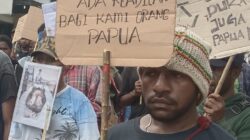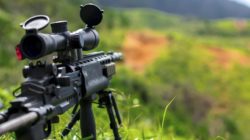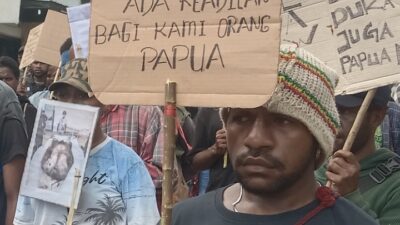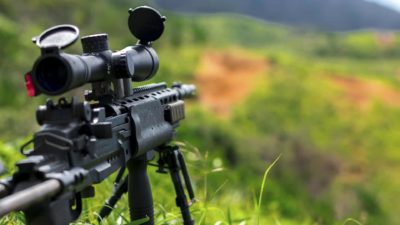Jayapura, Jubi – If you look at the mangroves in Papua New Guinea from Vanimo in north-westernmost PNG to the provinces of East Sepik and Madang, you can see that their mangroves are thriving well. Even though there is nickel mining in East Sepik’s capital of Wewak, the mangroves are left untouched.
The West Papuan say the fish there are still tame and know no bait. No wonder the Ambai fishermen of West Papua who went fishing at Wewak successfully found and sold fish there.
In contrast, the mangroves in West Papua’s Youtefa Bay are disappearing at an alarming level. The loss of mangrove forests will greatly affect fish stocks in the Pacific Ocean. This is because mangroves are spawning grounds for various types of fish, snails, shellfish, and molluscs.
Researcher and head of the Fisheries Studies at the Faculty of Mathematics and Natural Sciences John D Kallor told Jubi recently that mangrove forests in Youtefa Bay are already “sick”. “The loss of mangrove forests will lead to declining fish species in Youtefa Bay,” he said.
A resident of Injros Village, Nico Meraudje, told Jubi that bubara or bobara, mackerel, skipjack and goropah (grouper) fishes now rarely enter Youtefa Bay. “Only bulanak (bluespot mullet), samandar (rabbitfish), and squid that still remains in Youtefa Bay but there are just a few of them,” he said.
“We used to be able to see skipjack fish entering Youtefa Bay but now it is gone,” Nico added.
Similarly, a study by Cenderawasih University’s Public Health Sciences lecturer Hazmi in 2014 concluded that fish and shellfish in Youtefa Bay had been polluted with heavy metals such as lead.
“This condition is exacerbated by the behavior of residents who throw garbage directly into the four rivers that flow into Youtefa Bay. Moreover, Youtefa Bay is different from Hamadi beach which is directly exposed to the waves that garbage can be carried away by the current,” Hazmi told Jubi.
Hazmi said that when he conducted his research in 2014, Youtefa Bay was not as shallow as it is today. “In my study, I found that the water, fish, shellfish, and even the urine of residents around Youtefa Bay already contained heavy metals due to pollution,” he said.
Meanwhile, mud sediments that continue to enter Youtefa Bay are expected to worsen metal pollution in the waters.
Destruction of mangroves and fish stocks
The destruction of mangroves in Youtefa Bay, combined with the sedimentation that has made the lagoon even shallower, has damaged the habitat of fishes. It is no wonder that Papuan fishermen often go to the water borders of PNG, where there is still plenty of fish that are easy to catch.
The arrest of Indonesian fishermen in Papua New Guinea is not something new. But it is none other than a result of the decreasing fish stock in Papua waters. Fishermen go to the neighboring country’s waters as the fishing ground is not far, only 4-7 miles from the mainland.
The Antara news agency reported on June 7, 2019, that PNG police had arrested five Indonesian fishermen illegally fishing in the West Sepik province of PNG.
“It is true that five fishermen from Jayapura were arrested and currently detained in Vanimo,” Indonesian Consul in Vanimo Abraham Lebelauw said at that time.
Other than in Vanimo, Indonesian fishermen from Wakatobi were also arrested in southern PNG’s Daru Province for crossing the border and fishing there illegally. Among the fishes often caught there are the Chinese snapper, white snapper and kuro fish (threadfin).
Watchdog Destructive Fishing Watch (DFW) Indonesia recently received a report that one Indonesian-flagged fishing vessel had been arrested by PNG marine authorities. According to DFW Indonesia data, from May 2020 to November 2021, there have been six arrests that involve 34 Indonesian fishermen and crew. They were detained and tried in Papua New Guinea.
The latest incident is last week when PNG marine authorities chased three fishing boats from West Papua, resulting in the death of the captain of Calvin 02 fishing boat, who got shot in the neck. Two other vessels, Arsila 77 and Baraka Paris fishing boats were detained by the PNG authorities. (*)


